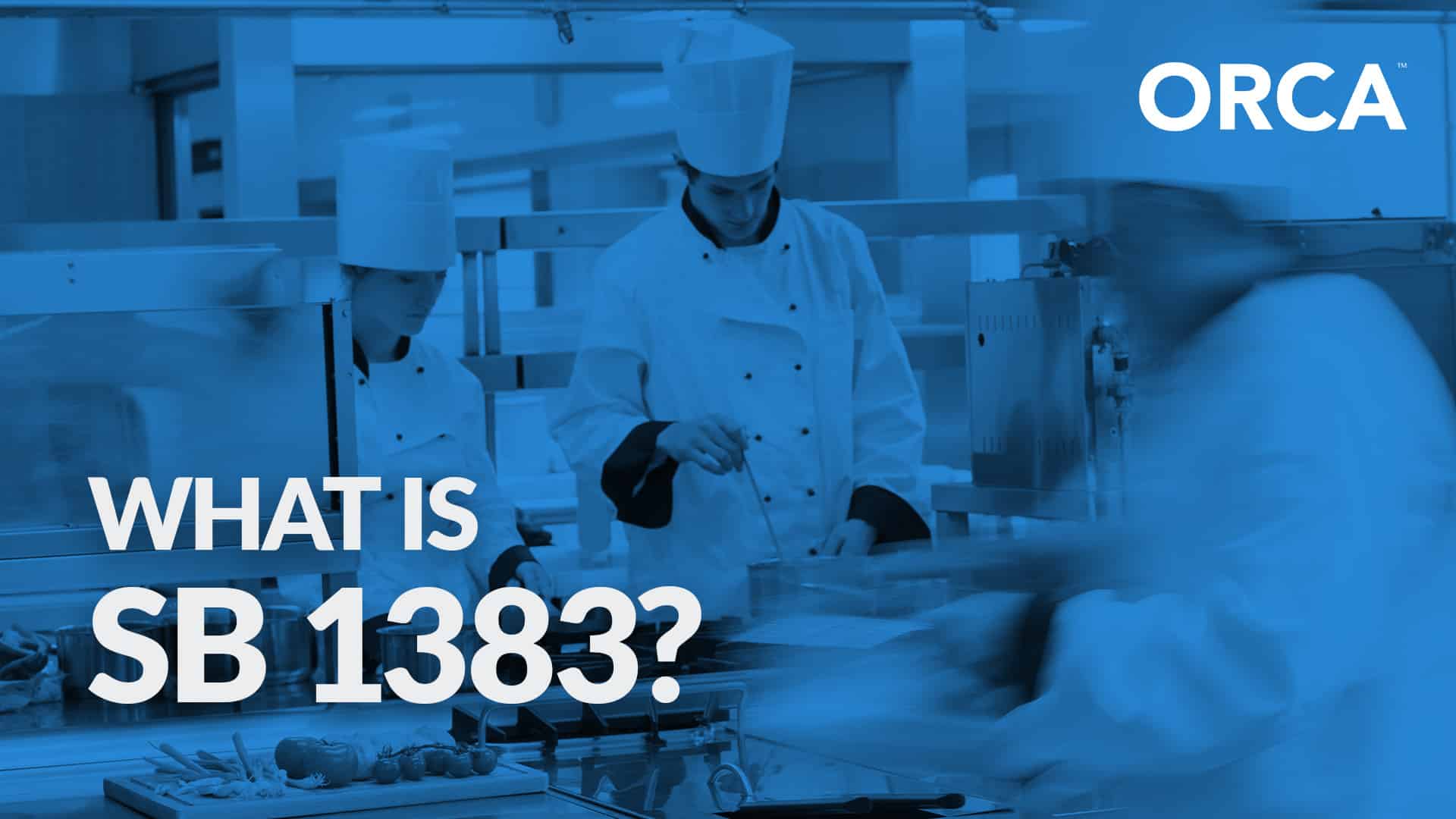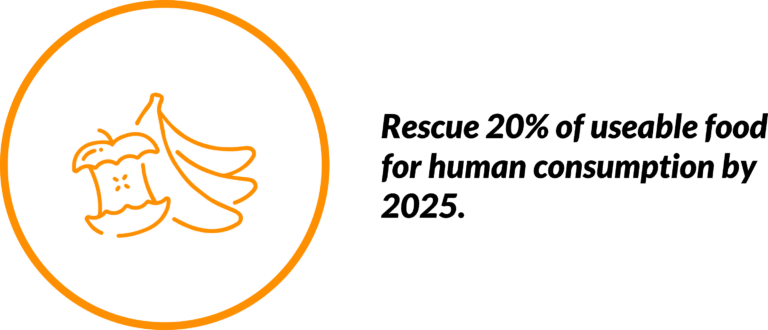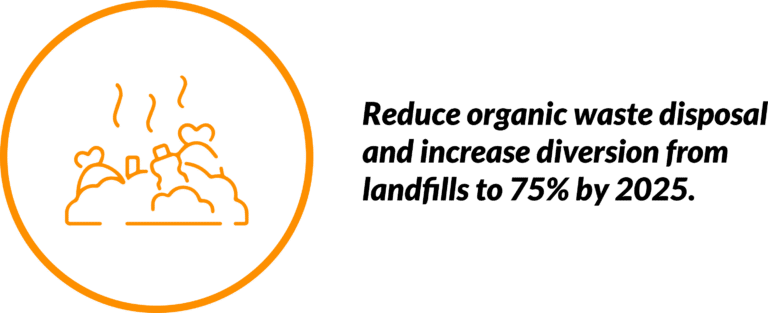
In an effort to combat the effects of climate change, the state of California has enacted legislation to reduce “short-lived climate pollutants,” beginning with taking food waste out of landfills. The state recently introduced changes to SB 1383, requiring households and businesses to divert and reduce food waste.
This legislation to increase diversion throughout the state has been implemented since 2016. Revisions took place in 2020, 2022 and most recently, for violations occurring after January 1, 2024, the jurisdiction will issue a Notice of Violation requiring compliance within 60 days. If after 60 days, the entity is still not in compliance, the jurisdiction shall impose penalties. As one of the first of its kind, SB 1383 includes a push for the reduction of avoidable food waste sent to landfills.
This law targets the reduction of methane emissions, a known contributor to human-caused climate change.
To do so, Governor Edmund Brown Jr. set a statewide goal to:


Large food waste generators in California are now responsible for finding organic reuse and recycling programs such as composting, donation, recovery, or technological solutions.
Unfortunately, this rapid increase in diversion efforts, with little to no infrastructure improvements, leaves many jurisdictions seeing double-digit hauling rate increases. Collecting and properly disposing of organic material has put vast amounts of stress on hauling companies that may not be equipped to handle the increased need for food waste recycling.
Reports across the state have claimed recycling and composting facilities have 500 tons of daily capacity. However, this amount is not sufficient to meet the targets established by SB 1383.
Food waste and organic recycling technologies are a great alternative to recover and divert important resources from landfills while avoiding the challenges faced by the hauling industry. Technology such as ORCA, an aerobic digester, acts as hardware and software simultaneously, empowering clients to track, reduce, and recycle all food waste on-site. ORCA acts as a giant stomach, naturally working to digest all food waste into a nutrient-rich liquid effluent, then automatically draining it into the existing sanitary sewer infrastructure.
Eliminating any transportation of food waste while providing reporting tools to help reduce this waste means businesses throughout the state have the option to incorporate an on-site food waste solution to comply with organic diversion laws such as SB 1383.
The use of an ORCA creates a meaningful impact as it rapidly creates secondary resources, such as recycled water, bio-gas or fertilizer for land application. We pride ourselves on helping our clients reduce their food waste footprint and recycle the contents in an efficient, sustainable way. Interested in more about learning more about aerobic digesters?
SB 1383 Regulations – The Office of Administrative Law approved SB 1383 regulations
» Final Regulations Text (Accessible Version)
» Final Statement of Reasons
» Final Statement of Purpose and Necessity
Final Comments and Responses
» January 18, 2019 – March 4, 2019
» June 21, 2019 – July 17, 2019
» October 3, 2019 – October 18, 2019
» November 26, 2019 – December 13, 2019
» April 20, 2020 – May 20, 2020
Final Environmental Impact Report
» Draft Environmental Impact Report
» Mitigation Monitoring or Reporting Program
» Findings and Statement of Overriding Considerations
Additional Resources
» Technologies: Aerobic Digesters – CalRecycle Home Page
» California’s Short-Lived Climate Pollutant Reduction Strategy
» CalRecycle Home Page Publication Summary
» SB 1383: A Revolution For OrganicWaste | BioCycle
» SB 1383: CalRecycle’s Organic Waste Recycling Requirement | City of Corona (coronaca.gov)
» CalRecycle: Technologies – Aerobic Digesters
Think ORCA may be for your business?
Contact us today to learn more about how ORCA can fit into your operations today!
Interested in staying up to date with ORCA and all food waste-related news? Subscribe in the box above!